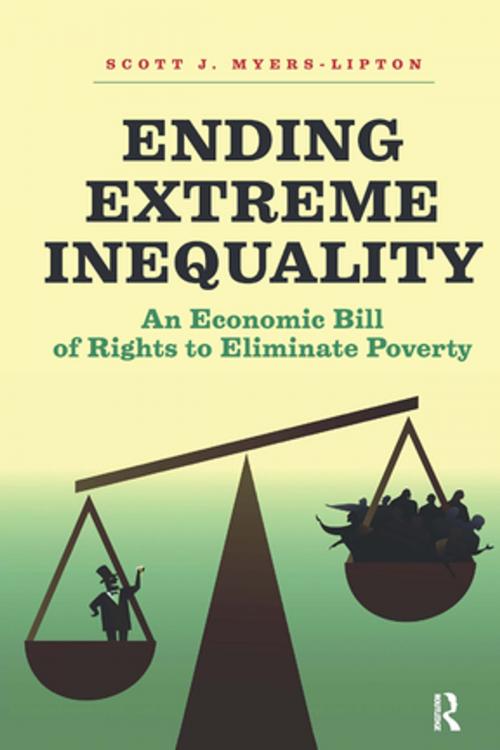Ending Extreme Inequality
An Economic Bill of Rights to Eliminate Poverty
Nonfiction, Social & Cultural Studies, Social Science, Sociology| Author: | Scott Myers-Lipton | ISBN: | 9781317260516 |
| Publisher: | Taylor and Francis | Publication: | November 17, 2015 |
| Imprint: | Routledge | Language: | English |
| Author: | Scott Myers-Lipton |
| ISBN: | 9781317260516 |
| Publisher: | Taylor and Francis |
| Publication: | November 17, 2015 |
| Imprint: | Routledge |
| Language: | English |
Poverty and inequality are at record levels. Today, forty-seven million Americans live in poverty, while the median is in decline. The top 20 percent now controls 89 percent of all wealth. These conditions have renewed demands for a new economic Bill of Rights, an idea proposed by F. D. Roosevelt, Truman and Martin Luther King, Jr. The new Economic Bill of Rights has a coherent plan and proclaims that all Americans have the right to a job, a living wage, a decent home, adequate medical care, good education, and adequate protection from economic fears of unemployment, sickness and old age. Integrating the latest economic and social data, Ending Extreme Inequality explores each of these rights. Each chapter includes: an analysis of the social problems surrounding each right; a historical overview of the attempts to right these wrongs; and assessments of current solutions offered by citizens, community groups and politicians. These contemporary, real-life solutions to inequality can inspire students and citizens to become involved and open pathways toward a more just society.
Poverty and inequality are at record levels. Today, forty-seven million Americans live in poverty, while the median is in decline. The top 20 percent now controls 89 percent of all wealth. These conditions have renewed demands for a new economic Bill of Rights, an idea proposed by F. D. Roosevelt, Truman and Martin Luther King, Jr. The new Economic Bill of Rights has a coherent plan and proclaims that all Americans have the right to a job, a living wage, a decent home, adequate medical care, good education, and adequate protection from economic fears of unemployment, sickness and old age. Integrating the latest economic and social data, Ending Extreme Inequality explores each of these rights. Each chapter includes: an analysis of the social problems surrounding each right; a historical overview of the attempts to right these wrongs; and assessments of current solutions offered by citizens, community groups and politicians. These contemporary, real-life solutions to inequality can inspire students and citizens to become involved and open pathways toward a more just society.















